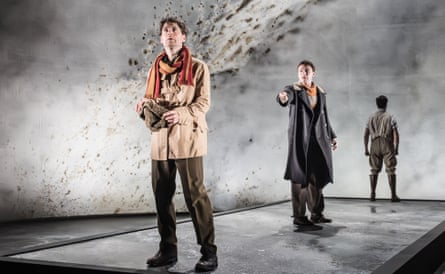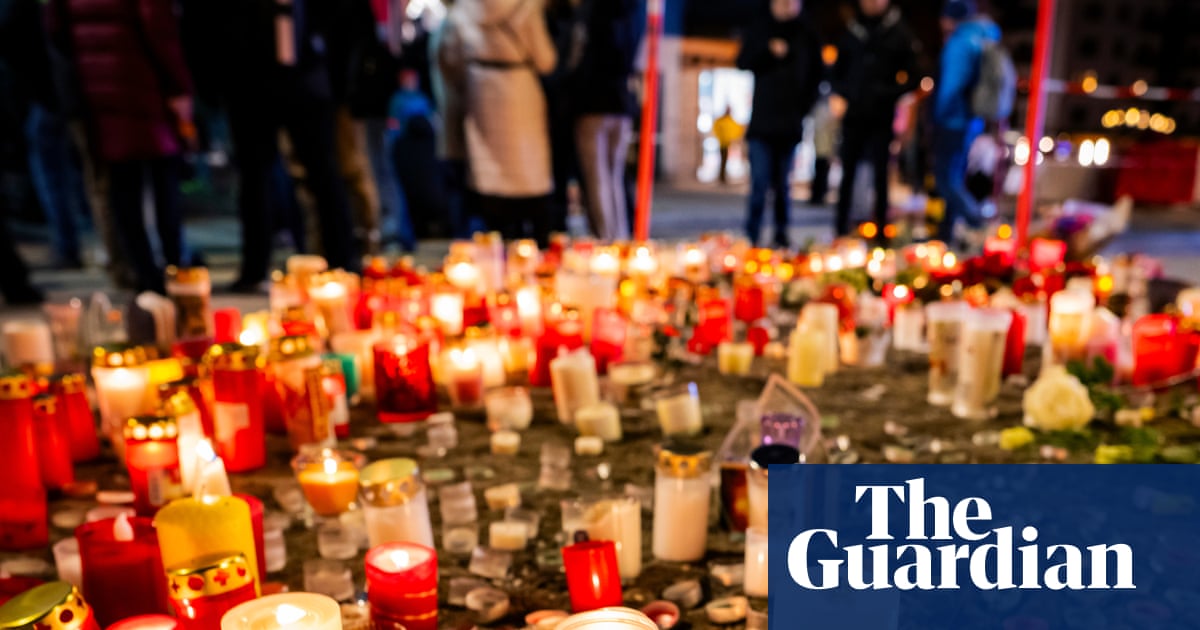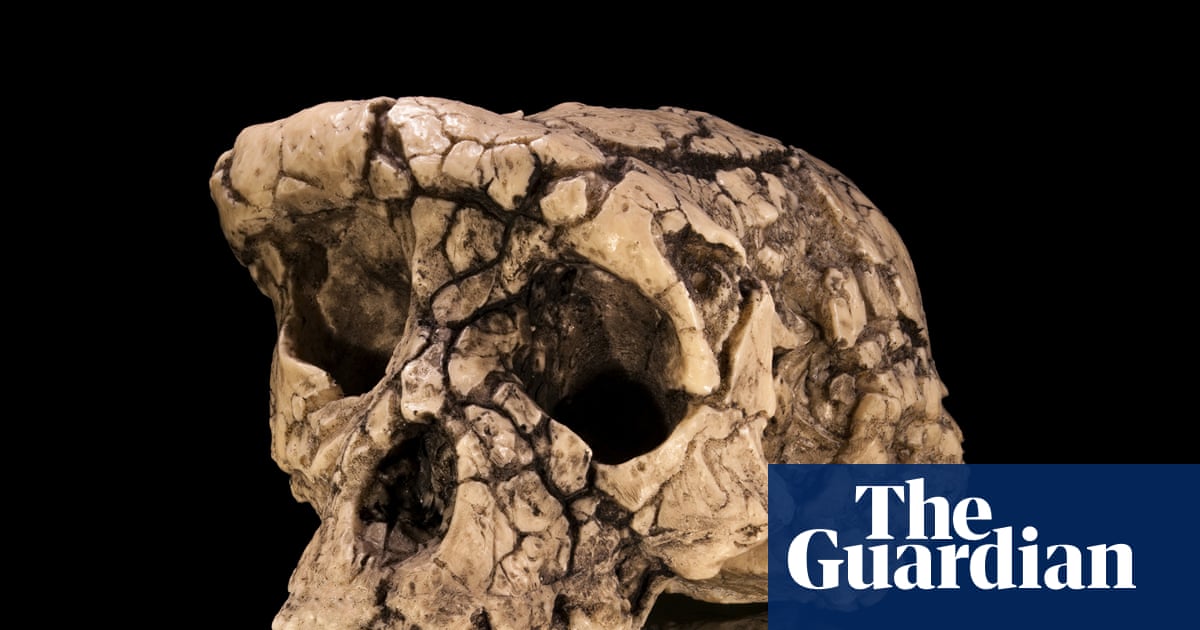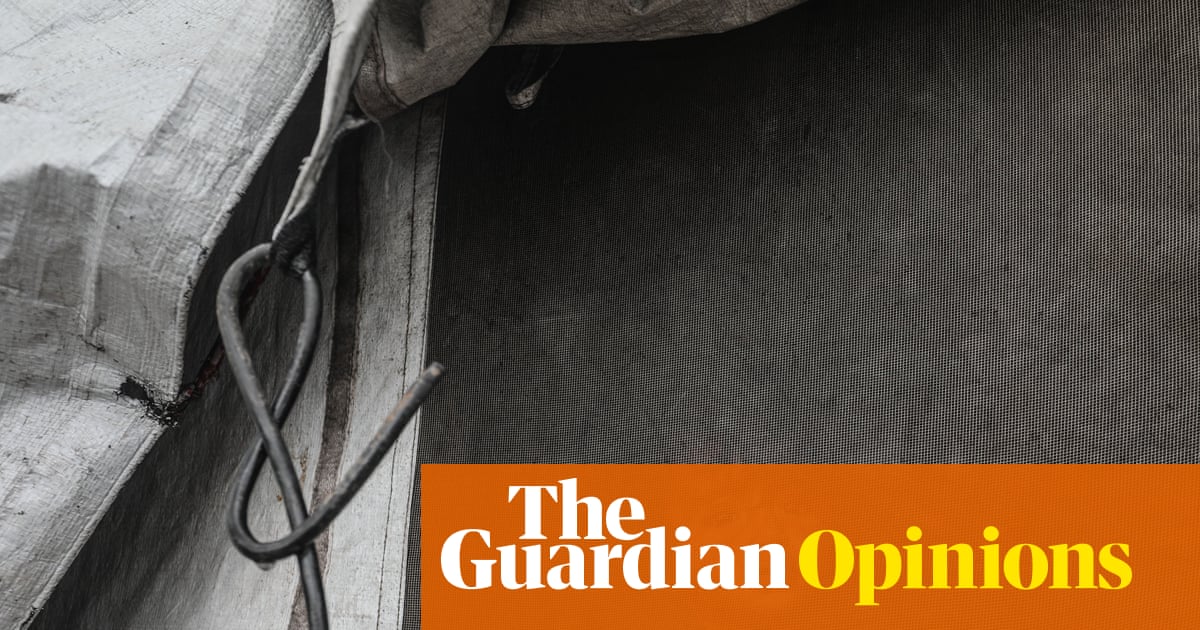What did the Romans do for us? In Alice Birch’s epic about the mess of modern masculinity, they are three brothers born into privilege. “My father wanted only sons,” says Jack Roman (Kyle Soller), kicking off the narrative. Birch plays boldly with time and form, so the boys – questing Jack, voracious Marlow and troubled Edmund – are children in the late Victorian era and emerge into manhood through the succeeding 150 years.
The play is subtitled “a novel” and Soller gives a pointed opening narration of familial decline and an icily abusive boarding school. For the Roman brothers, to become a man is an education in cruelty and a prompt to adventure. Each goes their own way: Jack explores the world, Marlow (Oliver Johnstone) exploits it and Edmund (beautifully played by Stuart Thompson) seeks to escape it entirely. It is only Edmund who tries to retain contact in a unreciprocated tumble of lonely words. All men, we hear, are self-made – though he laments: “I do not know that I have the pieces.”

Birch follows their various models of self-making through a brilliant modernist sequence, shards of experience darting between each other on Merle Hensel’s spinning platform stage. Refusing to look inward is dramatically testing. As Marlow marches inexorably from imperialist to edgelord, Johnstone can’t make him other than monumentally uninteresting.
It is a relief when women insert their voices, revising a romantic origin story (“it is essentially kidnap”) or failed marriage. Things turn postmodern as we approach the present: after the interval, Birch mediates male experience through film, cancel culture and podcasts. Masculinity becomes less an essence than a position – seductive to whooping bros and the women they grind down.
Romans is a fascinating, upsetting project, and Sam Pritchard’s alert production quivers with tension under Lee Curran’s sculptural lighting. Ultimately, patriarchy seems a legacy of damage, its ravening adventures dwindling unhappily into domestic life. These Romans may have set out to take the world, but they are fundamentally lost boys, hurting themselves and perhaps all of us.

 3 months ago
105
3 months ago
105

















































